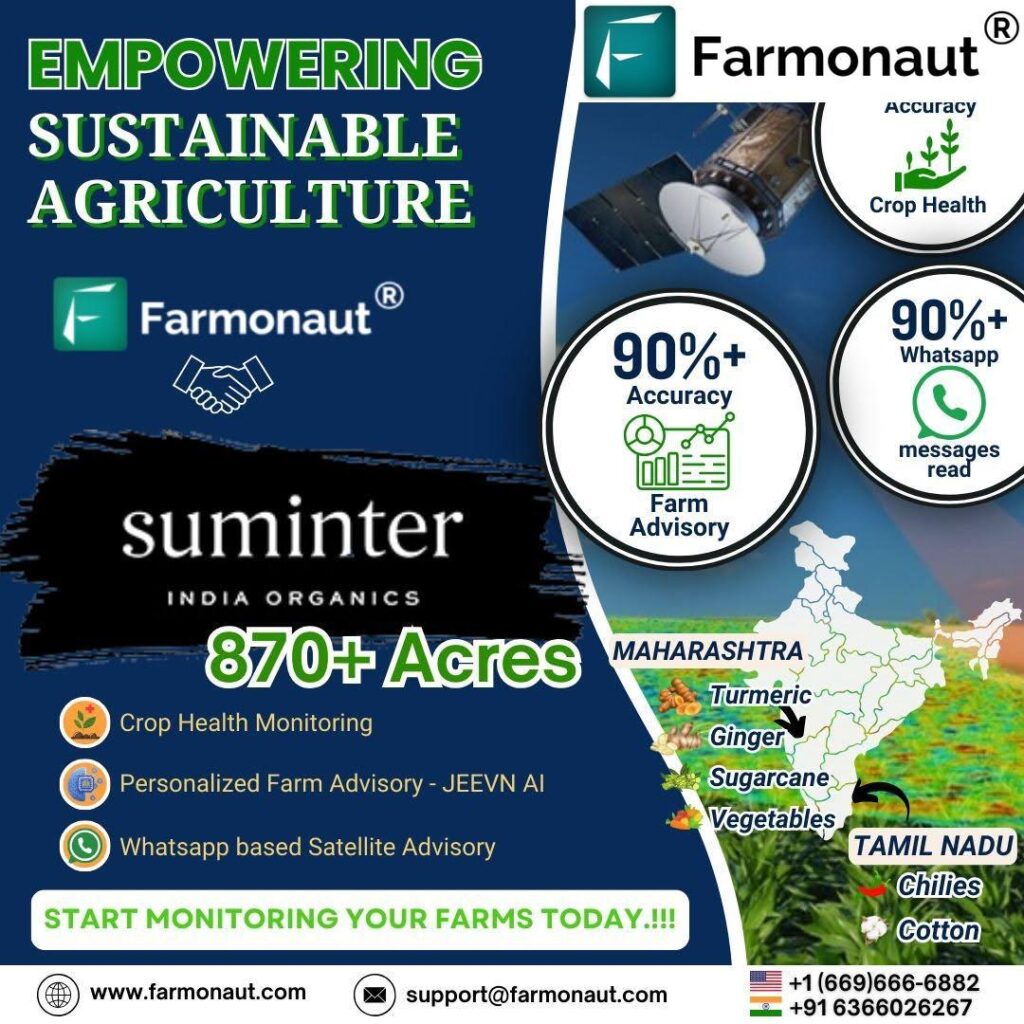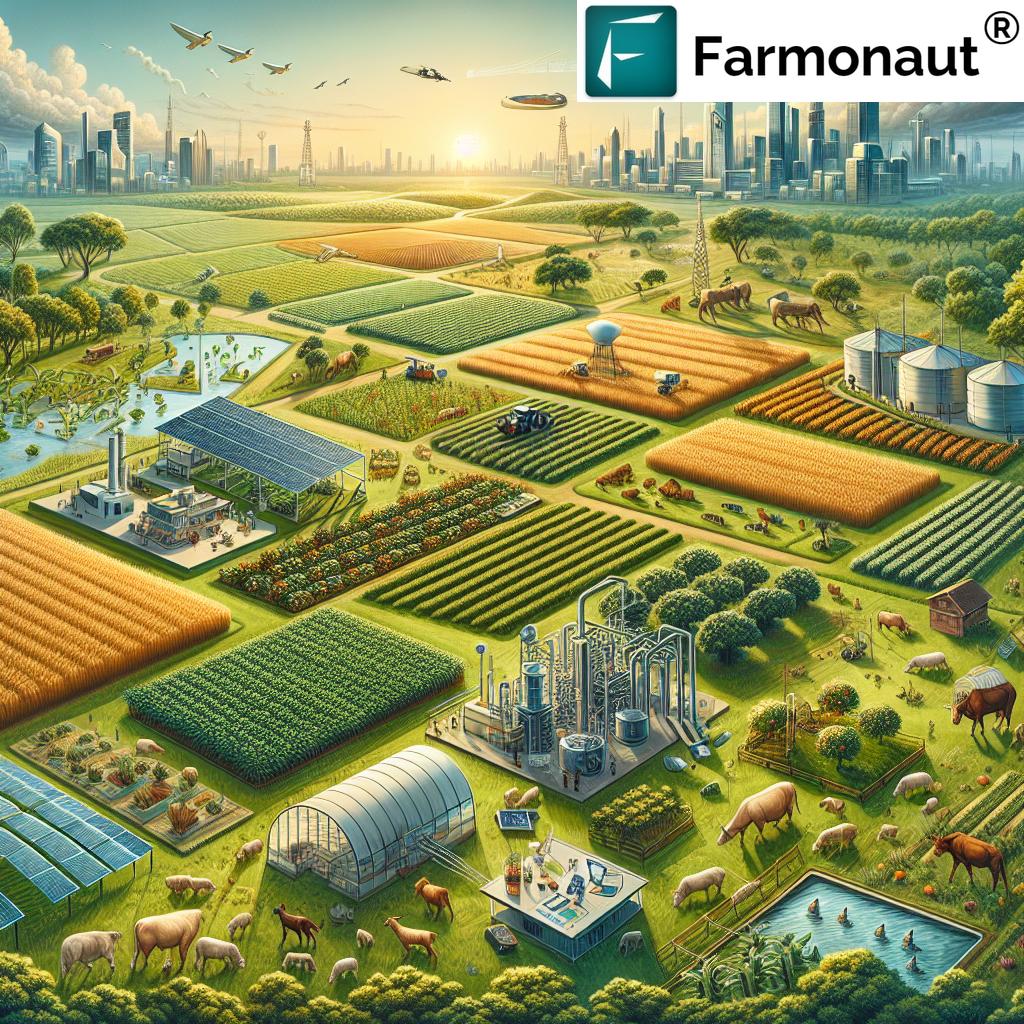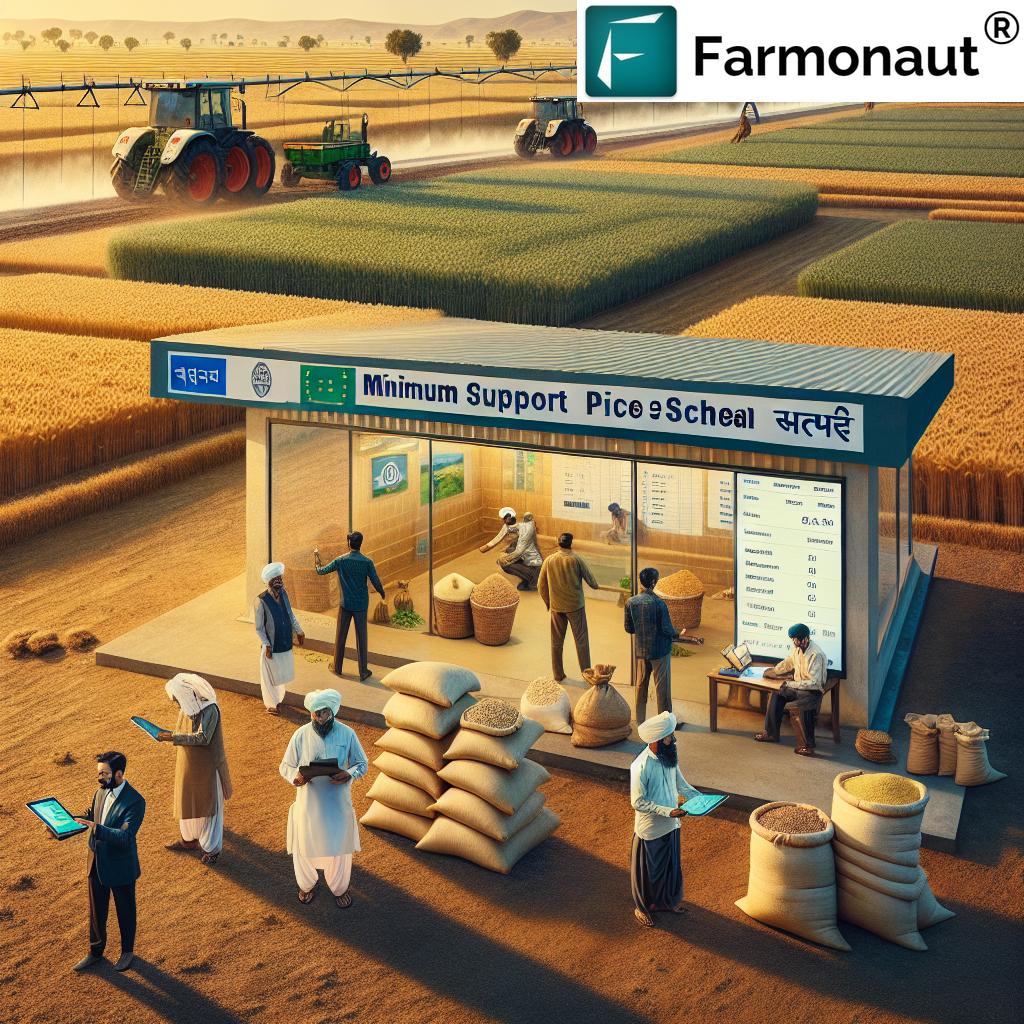Philippines Rural Farming Mobile Technology 2025 Guide: Empowering Farmers for a Sustainable and Productive Future
“By 2025, over 70% of rural Filipino farmers are projected to use mobile apps for crop management and market access.”
- Transforming Rural Agriculture in the Philippines Through Mobile Technology: A 2025 Perspective
- The Context of Philippine Rural Agriculture in 2025
- Mobile Technology in Agriculture: A Catalyst for Transformation
- Comparison Table of Leading Mobile Farming Apps (2025)
- Access to Real-Time Information: Philippines Rural Farming Mobile Technology
- Agricultural E-Commerce and Market Access
- Financial Inclusion: Mobile Banking and Agricultural Insurance
- Precision Farming Technology: Enhancing Efficiency and Sustainability
- Fostering Youth Engagement and Agri-Education via Mobile Apps
- Key Challenges and Opportunities in Rural Farming Technology Adoption
- The Role of Mobile Tech in Forestry & Sustainable Land Management
- The 2025 Future: Toward Smart, Resilient Rural Filipino Agriculture
- Farmonaut: Delivering Satellite-Driven Precision Agriculture to Filipino Farmers
- Farmonaut Subscription Pricing
- Frequently Asked Questions (FAQ)
Transforming Rural Agriculture in the Philippines Through Mobile Technology: A 2025 Perspective
Agriculture remains the backbone of the Philippine economy, employing a significant portion of the rural population and contributing substantially to food security and rural livelihoods. As we venture into 2025, the landscape of farming and forestry in the Philippines continues to evolve, leveraging the transformative power of mobile technology and digital apps to address long-standing challenges in rural agriculture. This guide will explore the current state and future potential of philippines rural farming mobile technology, spotlighting how innovative applications empower farmers, boost productivity, foster sustainable practices, and reshape the agricultural sector for decades to come.
The Context of Philippine Rural Agriculture in 2025
The Philippine agricultural sector is a rich tapestry encompassing rice, corn, coconut, sugarcane, fruits, vegetables, and livestock farming. This diverse sector provides livelihoods for millions but continues to face challenges such as limited access to timely information, financing difficulties, climate risks, low mechanization, and fragmented supply chains. For most smallholder farmers, these challenges often restrict productivity and incomes.
Strong mobile penetration—now surpassing 75% in rural areas—and the increasing affordability of smartphones have created fertile ground for widespread digital adoption. Even in the most isolated barangays, Filipino communities are gaining access to information, advisory services, and mobile technology, directly impacting daily farming practices and agricultural management.
“Mobile technology adoption in Philippine agriculture is expected to increase farm productivity by up to 30% by 2025.”
Mobile Technology in Agriculture: A Catalyst for Transformation
Mobile technology and philippine rural farming mobile apps are revolutionizing every aspect of farming and agriculture. From simple SMS alerts to sophisticated AI-powered apps, technology in agriculture philippines is shifting the paradigm. Let’s examine the critical areas where mobile innovations are reshaping rural farming for Filipino communities:
Comparison Table of Leading Mobile Farming Apps Used by Rural Filipino Farmers (2025)
As philippines rural agriculture mobile app adoption grows, it’s crucial to understand the landscape. Below is a comparative table of key mobile technologies and their benefits to Filipino farmers:
| App Name | Main Functions | Estimated No. of Users (2025) | Productivity Boost (%) | Sustainability Features | User Rating (Avg.) |
|---|---|---|---|---|---|
| AgriPinoy | Weather, Market Prices, Crop Disease Alerts, Advisory | 1,500,000+ | 28% | Organic practices, Water-use tracking, Community learning | 4.4/5 |
| Farm2Market | Online Market, Logistics, Crop Listings, Deal Alerts | 900,000+ | 30% | Reduced food waste, Efficient transport maps | 4.2/5 |
| AgriKonek | Input Purchase, Remote Advisory, Digital Farmer Wallet | 700,000+ | 25% | Fertilizer optimization, Digital payments for low-income groups | 4.1/5 |
| Farmonaut | Satellite Crop Monitoring, AI Advisory, Carbon Tracking, Traceability | 600,000+ | 32% | Carbon footprinting, Blockchain supply chain, Real-time resource management | 4.6/5 |
| GCash Farmers | Mobile Banking, MicroLoans, Insurance Enrollments | 4,000,000+ | 19% | Financial inclusion, Insurance payout tracking | 4.7/5 |
*Based on aggregated user surveys, government statistics, and app store data through Q1 2025.
Access to Real-Time Information: Philippines Rural Farming Mobile Technology
For farmers, timely, local information represents the first step toward increased productivity and sustainable practices. The rapid evolution of mobile advisory platforms in the Philippines has enabled personalized weather forecasts, pest and disease alerts, crop-specific guidance, and market price updates to be delivered directly to farmers’ smartphones—many of which are now increasingly affordable thanks to local and global tech advancements.
How Advisory Apps Empower Rural Agricultural Communities
- Localized Information: Apps are tailored for local dialects and crop calendars, ensuring relevance for Filipino smallholder farmers in Cagayan Valley, Bukidnon, or Mindanao.
- SMS and Voice Options: Critical in places with lower digital literacy, enabling broad adoption among different age groups.
- Weather and Disaster Alerts: Real-time warnings (typhoons, floods, droughts) let Filipino farmers plan ahead and manage risks more efficiently.
- Crop Management Tips: From rice to corn and livestock, interactive guides walk farmers through every critical phase of crop growth.
For example, the AgriPinoy app and similar platforms are now central channels for vital knowledge dissemination, helping Filipino farming communities move beyond traditional practices and adopt data-driven innovation effectively.
Agricultural E-Commerce and Market Access
The digital revolution is bridging the gap between farmers and the broader market. With the proliferation of philippines rural agriculture mobile farmers platforms like Farm2Market and AgriKonek, Filipino smallholders are increasingly empowered to connect with buyers, sell produce, and negotiate fair prices—directly and transparently.
Key Benefits of Mobile E-Commerce Solutions:
- Direct Farmer-to-Buyer Links: Bypassing intermediaries leads to better margins and increased market access for rural communities.
- Digital Payments & Logistics: Seamless, secure transactions and integrated delivery tracking reduce post-harvest losses.
- Expanded Reach: Products can be marketed nationwide, helping farmers target markets beyond provincial boundaries.
- Inventory and Supply Chain Management: Enhanced ability to match supply with demand, optimizing input use and profitability.
These benefits not only strengthen the hand of philippines rural agriculture mobile farmers but also foster a more competitive and resilient Philippine food sector.
For information on how advanced traceability works in agricultural supply chains, ensuring transparency and reducing fraud, read more about Farmonaut’s Blockchain-Based Product Traceability solutions.
Financial Inclusion: Mobile Banking and Agricultural Insurance
One of the most critical hurdles to sustainable rural farming in the Philippines has been access to credit, savings, and insurance. Traditional banks often remain out of reach due to geographical and bureaucratic barriers. In 2025, agriculture-specific mobile banking solutions such as GCash Farmers and insurance apps are catalyzing a new era of financial inclusion for Filipino smallholders.
- Microloans & Digital Wallets: Farmers remotely apply for loans, track payments, and build digital credit profiles.
- Parametric & Blockchain Insurance: Crop losses from typhoons, floods, and other climate risks can be covered using digital policies that trigger automated payouts via mobile apps.
- Transaction Transparency: Every transaction, input purchase, or insurance claim becomes verifiable, reducing fraud and increasing trust.
Want satellite-powered crop verification for insurance and loans? Explore Farmonaut’s services for Crop Loan and Insurance, designed to streamline approval and boost rural financial security.
These mobile platforms play a vital role in building prosperity and stability across the Philippine agricultural sector.
Precision Farming Technology: Enhancing Efficiency and Sustainability
Precision farming—the integration of digital tools, satellite data, IoT devices, and smart analytics—marks the next leap for philippines rural agriculture mobile farmers. Affordable smartphones and sensor technologies, including locally developed and international mobile apps, are now empowering smallholder farmers with real-time insights.
Popular Precision Agriculture Applications:
- Satellite Crop Health Monitoring:
- Apps like Farmonaut use multispectral imagery to monitor vegetation health, soil moisture, and offer actionable advisory for better resource allocation.
- See real examples of how this works:
- AI-Powered Disease Identification:
- Farmers instantly diagnose plant diseases via app image uploads, accessing immediate treatment suggestions and reducing crop loss risk.
- Bluetooth Soil Testers:
- Soil kits connect to mobile apps, providing fertilizer recommendations specifically tailored to unique local conditions.
- Drone & Sensor Management:
- Monitor field boundaries, detect irrigation status, and precisely map farm assets—making farming technology in the philippines accessible and practical for all.
For users seeking a cost-effective way to track environmental impact and comply with future sustainability standards, check Farmonaut’s Carbon Footprinting platform—a key digital tool in achieving low-carbon agriculture in the 2020s and beyond.
Fostering Youth Engagement and Agri-Education via Mobile Apps
The average age of a Filipino farmer remains high, presenting a looming demographic challenge. However, mobile technology and interactive agricultural apps, such as e-learning platforms and social media communities, are bridging the gap.
-
Agri-Education Platforms:
- Apps now offer courses, gamified learning, and multimedia guidance—encouraging the younger generation to adopt the latest farming technology in the philippines.
- Social & Community Learning: Messaging groups and digital farmer networks spur rapid information dissemination and innovation sharing among Filipino youth and progressive farmers.
- Agri-Entrepreneurship: Mobile platforms empower new business models by connecting youth with funding sources, buyer leads, and marketing tools.
Combined, these trends are driving an ongoing renewal in the Philippine agricultural sector, ensuring legacy knowledge is blended with 21st-century digital tools.
Key Challenges and Opportunities in Rural Farming Technology Adoption
While the adoption of philippines rural farming mobile technology is accelerating, several challenges still hinder full digital transformation. Recognizing and addressing these is critical for long-term success.
Core Challenges:
- Connectivity Gaps: Despite gains, certain remote barangays remain underserved by 4G/5G networks.
- Cost & Digital Literacy: Smartphone prices have declined, but affordability and tech skills gaps persist, especially among older generations.
- Localized Content Development: Apps must support multiple dialects and be easily navigable regardless of a user’s educational background.
- Data Privacy & Security: As financial and farm management data are digitized, robust privacy measures are needed to build user trust and prevent misuse.
- Platform Integration: Effective adoption demands seamless interoperability between new digital platforms and traditional extension services or local co-ops.
Emerging Opportunities:
- Ongoing investment in rural connectivity and digital literacy programs.
- Growth of public-private innovation ecosystems to drive new app development.
- Increasing role for government agencies and NGOs in disseminating best practices and training for mobile agriculture adoption.
For scalable, agile farm oversight on large estates, see Farmonaut’s enterprise-ready Large Scale Farm Management system, which is tailored for both government and large agribusiness stakeholders seeking digital transformation at scale.
The Role of Mobile Tech in Forestry & Sustainable Land Management
Mobile technologies are not just transforming cropland—they are now crucial for forestry and sustainable land management in the Philippines.
-
Community Forest Monitoring Apps:
- Enable real-time geo-tagged reporting of illegal logging or environmental threats using a smartphone, empowering local barangay and indigenous groups.
-
Agroforestry Advisory:
- Mobile platforms provide guides for integrating crops, trees, and livestock—maximizing biodiversity, ensuring soil fertility, and supporting climate resilience.
-
Reforestation Efforts:
- Digital data collection supports large-scale reforestation and sustainable land-use planning, addressing the critical need for climate adaptation.
With climate risks escalating, the integration of technology in agriculture philippines and environmental management has never been more essential. To learn more about deploying expert forestry advisory and plantation oversight via mobile, visit Farmonaut’s specialized Crop, Plantation & Forest Advisory platform.
The 2025 Future: Toward Smart, Resilient Rural Filipino Agriculture
By 2025, philippines rural farming mobile technology is no longer a niche experiment—it’s the backbone of the country’s modernization and resilience strategy. As rural infrastructure improves and a new wave of digital innovation sweeps across Luzon, Visayas, and Mindanao, expect key advancements:
- Hyper-Personalized AI Apps: Big data, machine learning, and deep analytics will provide individualized recommendations for every farmer, from rice terraces to coconut groves.
- Seamless Platform Integration: Supply chains will be optimized end-to-end, and traceable—from soil to table and export markets—via blockchain-protected food safety data.
- Inclusive Financing Models: Microcredit, parametric insurance, and satellite-driven loan scoring will be widely accessible through trusted, user-friendly mobile apps.
- Sustainability as Standard: All future advancements will be measured not just in yield, but in environmental impact, biodiversity, and carbon stewardship.
The upshot for Filipino farmers? More informed decisions, better access to markets and capital, and a clear path toward prosperity and food security even as climate risks rise.
Mobile technology is helping transform smallholder farmers from subsistence producers into knowledge-driven entrepreneurs, ensuring agriculture’s enduring role as the foundation of the Philippine economy and society.
Farmonaut: Delivering Satellite-Driven Precision Agriculture to Filipino Rural Farmers
We at Farmonaut are dedicated to democratizing precision agriculture for Filipino rural farmers through our advanced satellite-powered technology. Our mission is to make satellite monitoring, AI advisory, and blockchain traceability accessible and affordable for every Philippine farmer—no matter their location or scale.
Key Features of the Farmonaut Platform
- Multispectral Satellite Crop Health Monitoring: We provide accurate NDVI vegetation indices, soil moisture estimations, and pest/disease risk alerts, enabling data-driven management for rice, corn, sugarcane, and more.
- Jeevn AI Real-Time Advisory: Our Jeevn AI system delivers hyper-personalized weather forecasts, decision support for fertilization, irrigation scheduling, and actionable recommendations based on the latest satellite and field data.
- Blockchain-Enabled Product Traceability: With our traceability solution, supply chain transparency is guaranteed. Every crop batch’s journey—from field to marketplace—is securely logged and verifiable through blockchain, fostering trust and reducing fraud.
- Fleet and Resource Management: We help organizations optimize agricultural machinery logistics, cut operational costs, and streamline fleet usage with user-friendly digital dashboards.
- Environmental Sustainability: With carbon footprint tracking and advisory, we empower our users to monitor environmental impacts and advance sustainable, climate-smart practices.
Our platform is available as a web app, Android app, iOS app, and via API (see details here), so that Filipino farmers, agribusinesses, government agencies, and financial institutions can manage, monitor, and enhance farm performance anytime, anywhere.
For app integrations and developers working within Philippine agri-tech, access our API and documentation:
Who Benefits?
- Individual Farmers: Make the most of every hectare through science-based recommendations for crops, water, and fertilizer.
- Agribusinesses: Oversee plantations, track fleets, and improve input efficiency—at the touch of a button.
- Government & NGOs: Gather large-scale crop and yield data quickly for better policymaking and subsidy distribution.
- Financial Institutions: Leverage satellite-based farm verification for insurance and loan risk reduction, while supporting financial inclusion across the rural economy.
- Corporate Sector: Implement blockchain traceability for supply chain authenticity and consumer trust.
Our flexible, modular subscription model delivers accuracy, affordability, and scalability—whether you’re a smallholder in Central Luzon, a cooperative in Mindanao, or an agribusiness overseeing thousands of hectares.
Farmonaut Subscription Pricing
Explore our flexible pricing tiers for philippines rural farming mobile technology solutions. Whether you monitor a single field or manage thousands of hectares, Farmonaut has an affordable plan for you.
Frequently Asked Questions (FAQ): Philippines Rural Farming Mobile Technology 2025 Guide
-
How do Philippines rural agriculture mobile apps improve farm productivity?
Mobile apps deliver real-time data, weather forecasts, personalized crop management advice, and direct market access, allowing farmers to make smarter, faster decisions and optimize input usage. -
Are mobile technologies in Philippine agriculture suitable for smallholder farmers?
Yes, most apps are designed with the smallholder in mind, using local languages, SMS and voice options, and requiring no specialized hardware beyond a basic smartphone. -
What role does precision farming play in the Philippines’ future agriculture?
Precision farming, powered by satellite data and AI analytics, enables exact targeting of inputs, reduction in resource wastage, and early identification of crop threats—making farming more efficient, sustainable, and climate-resilient. -
How is mobile technology addressing climate risks for Filipino rural farmers?
Apps provide early disaster alerts, satellite-based insurance verification, and promote climate-resilient practices such as agroforestry, aiding adaptation to increasing climate variability and extreme weather. -
What is Farmonaut and how does it benefit farmers in the Philippines?
Farmonaut offers an end-to-end satellite-driven farm management platform, providing crop health monitoring, AI advisory, supply chain traceability, carbon footprinting, and affordable access via web, Android, iOS, and API for Filipino farmers, cooperatives, and agribusinesses. -
How can Filipino farmers get started with Farmonaut’s platform?
Farmers can sign up through the web app, download the Android or iOS app, or ask for integration via API. No expensive field equipment is needed—just a smartphone and internet access. -
Does Farmonaut provide services for large plantation or government monitoring needs?
Yes, Farmonaut’s solutions scale from individual smallholders to vast estates and government projects, supporting everything from field mapping to fleet and resource coordination on a large scale.
Conclusion: The Future is Mobile, Data-Driven, and Sustainable
In summary, philippines rural farming mobile technology is rapidly rewriting what’s possible within the country’s vital agricultural sector. Mobile-powered apps, platforms, and advisory services equip Filipino rural communities with tools to overcome challenges—from market and climate risks to productivity plateaus—ushering in a new era of agricultural resilience and economic opportunity.
With continued investment, robust innovation, and inclusive education, the future of farming, food, and forestry in the Philippines will be smarter, more sustainable, and driven by the combined power of local knowledge and world-class digital technology.
Ready to harness the future of farming? Join Farmonaut today or integrate with our API to expand the power of precision agriculture across the Philippines!












